We support fisheries through our Ocean Stewardship Fund. Before this, our Global Fisheries Sustainability Fund supported small-scale fisheries and fisheries in developing economies on their journey to sustainability.
Change around the world
Our Global Fisheries Sustainability Fund supported ten projects around the world. Funding helped fisheries work towards sustainability, generate new science and protect the livelihoods of people in coastal areas.
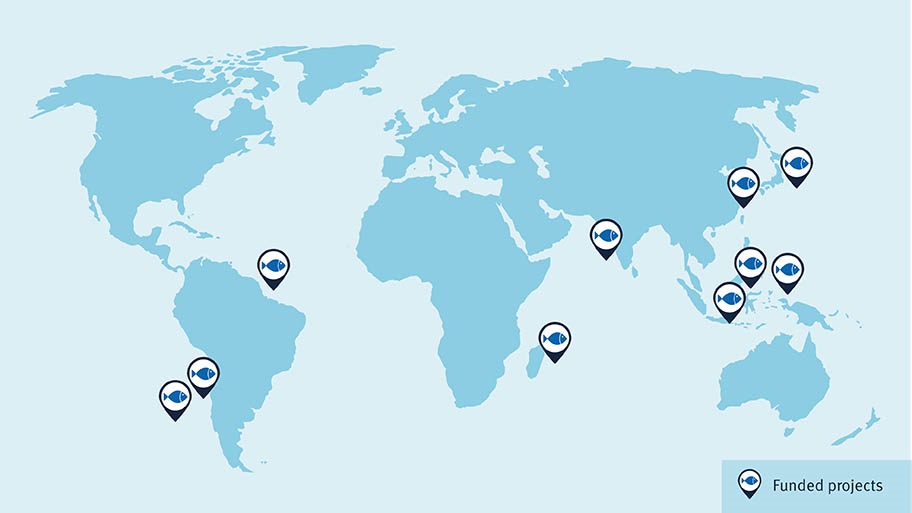
Project achievements
Collaborating to safeguard the future of Chilean stone crab
ECOS Research Centre and the Ancud Crab Productivity Committee £40,000
In Chile, over 70% of stone crab are caught in the southern region of Los Lagos. The fishery is an important resource for the region’s coastal town of Ancud where the local community is working to ensure the fishery is managed sustainably. Funding supported the implementation of a Fishery Improvement Project. It provided community training workshops on sustainable fisheries management and inspired other fisheries in the region to develop their own sustainability improvement projects. The region now has a network or organisations working together to ensure there are stone crab for future generations.
Conserving migratory bird habitats in the Yellow Sea
WWF Japan £48,000
Shellfish harvested in the Yellow Sea Ecoregion are important for the livelihoods of people in China, Korea and Japan. The region’s tidal mudflats are a key habitat for migrating birds that come to the region to rest and feed. WWF Japan used the fund to successfully implement a Fishery Improvement Project for the Manila clam fishery. The project improved scientific knowledge on the impacts of the fishery and has contributed to regional food security. It has also helped conserve the habitat of migratory birds in the Yellow Sea Ecoregion.
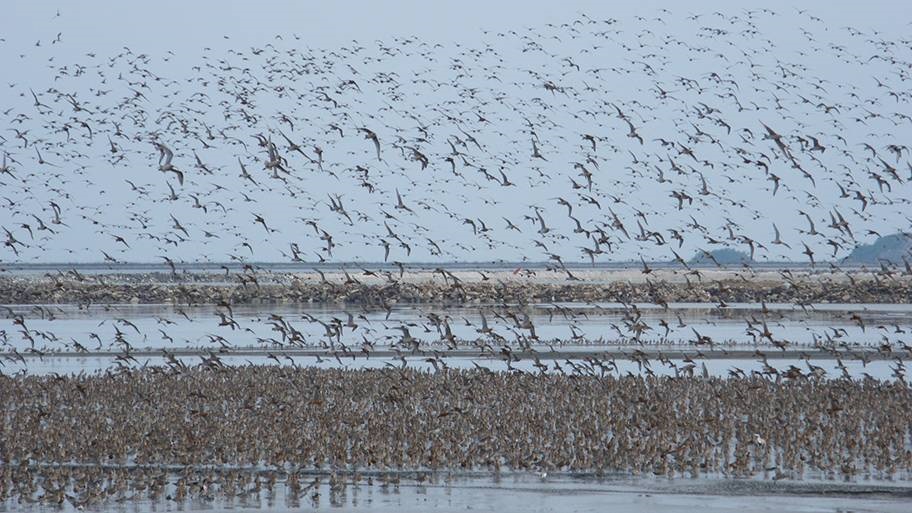
Collecting data on baitfish in Indonesia
Centre for Environment, Fisheries and Aquaculture Science (Cefas) £60,000
Indonesia is one of the world’s largest tuna fishing nations. When using pole and line fishing methods to catch tuna, fishers use small fish as bait to attract tuna. Very little is known about the population status of the fish used as bait due to the lack of data. Cefas worked with partners, including the International Pole and Line Foundation, to carry out stock assessments on Indonesia's baitfish fisheries. The project provided insights into current data gaps and has helped identify where future data collection efforts should be directed.
Improving crayfish research in China
China Aquatic Product Processing and Marketing Alliance £45,000
China produces two thirds of crayfish globally. China Aquatic Product Processing and Marketing Alliance worked with small-scale crayfish fisheries in the Yangtze River ecosystem, engaging them in the MSC program. As part of the project, scientists from the Hubei Fishery Research Institute and National Crayfish Research Centre researched the crayfish population size and fishing impacts on habitats which has informed management decisions.
Protecting livelihoods in Madagascar
Blue Ventures £30,000
Octopus fishing is an economic lifeline for rural coastal communities in southwest Madagascar. Human migration to coastal regions has put pressure on the fishery, increasing the need for sustainable management. Blue Ventures used the funding to conduct research into the stock status of octopus and train community members in fishery data collection. The project built a digital data platform for the community members' data to feed into. It now provides fishery managers with the data they need to make fishery management decisions, such as area closures.
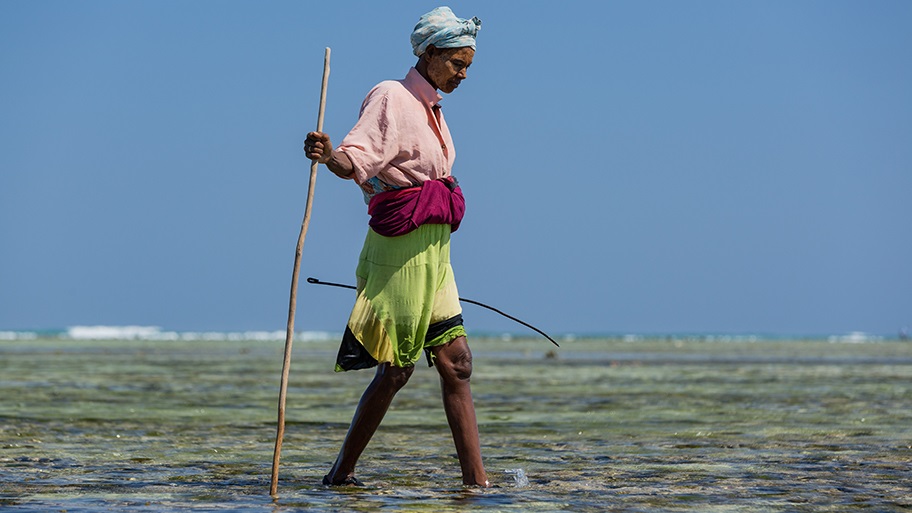
Developing a sustainable management plan for bait fisheries in India
Recipient: WWF India £40,000
Although India’s seafood exports are at a record high, there are few certified fisheries in the region. Lakshadweep, India, is a region that depends on fishing for income and as a food source. WWF India used the fund to create a fishery management plan to ensure the sustainability of both baitfish and tuna fisheries in Lakshadweep.
Improving supply chain traceability in small-scale tuna fisheries
Recipient: Masyarakat Dan Perikanan Indonesia Foundation (MDPI) £18,000
Project partners: Asosiasi Pole and Line dan Handline Indonesia, UNIDO Indonesia and the International Pole and Line Foundation
Indonesia is one of the biggest tuna fishing nations in the world. For Indonesia’s tuna products to carry the MSC label, they need to have traceable supply chains that meet the requirements of MSC Chain of Custody Standard. Traceable products help prevent illegal, unregulated and unreported products from entering supply chains. MDPI used the fund to support small-scale tuna fisheries in improving the traceability of their supply chains. Research identified areas the tuna supply chain companies needed to improve and the project provided organisations with training through workshops.
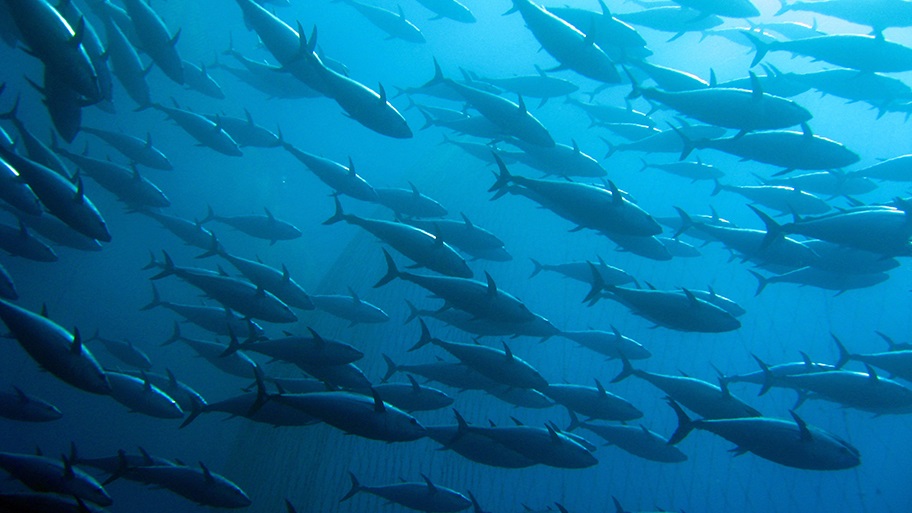
Capacity building in the Coral Triangle
Recipient: WWF Coral Triangle Program £38,000
A key constraint to fishery improvement efforts in developing economies is often the cost of developing Fishery Improvement Projects. The WWF Coral Triangle Program used its grant for a capacity building program to train in-country experts so they can carry out Fishery Improvement Project assessments and MSC pre-assessments in Vietnam and Indonesia.
Building on scientific research in Suriname
Recipient: WWF Guianas £40,000
The Suriname fishing sector is estimated to employ 10,000 people and generate 40,000 tonnes of wild captured fish and shrimp each year. There are signs that some coastal fish species in Suriname are declining but there is a need for more scientific data in this area. WWF Guianas used funding to assess the stock status of six fish species in the region through collaborating with fishers to conduct field sampling.
Find out more
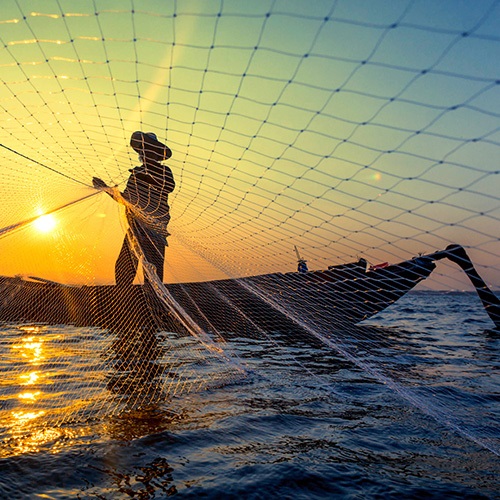
Ocean Stewardship Fund
The MSC's Ocean Stewardship Fund offers grants to certified sustainable fisheries, improving fisheries and fisheries investing in scientific research.
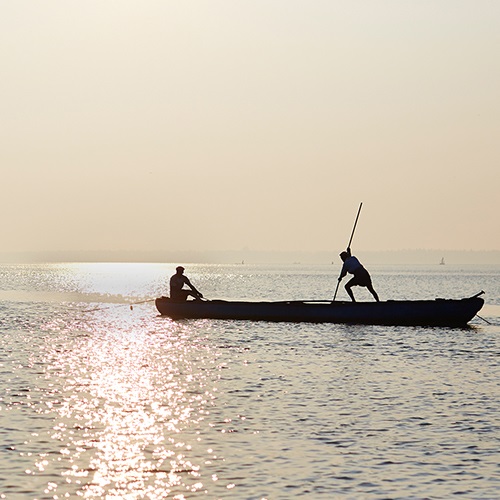
Pathway to sustainability
The MSC is working with NGOs, governments, retailers and funders around the world to create a pathway to sustainability for small-scale fisheries and fisheries in developing countries.
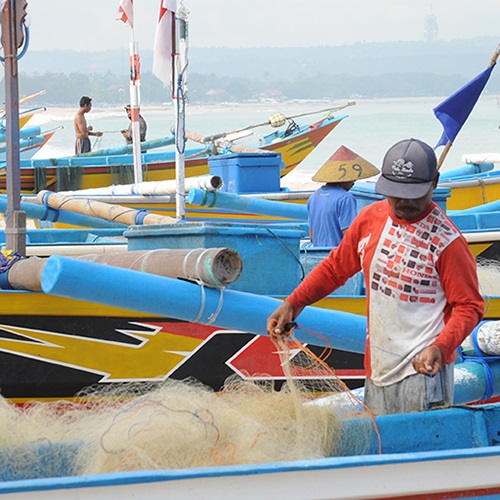
Fish for Good
Fish for Good is a four-year project aiming to guide fisheries in Indonesia, Mexico and South Africa on their journey towards sustainability.
